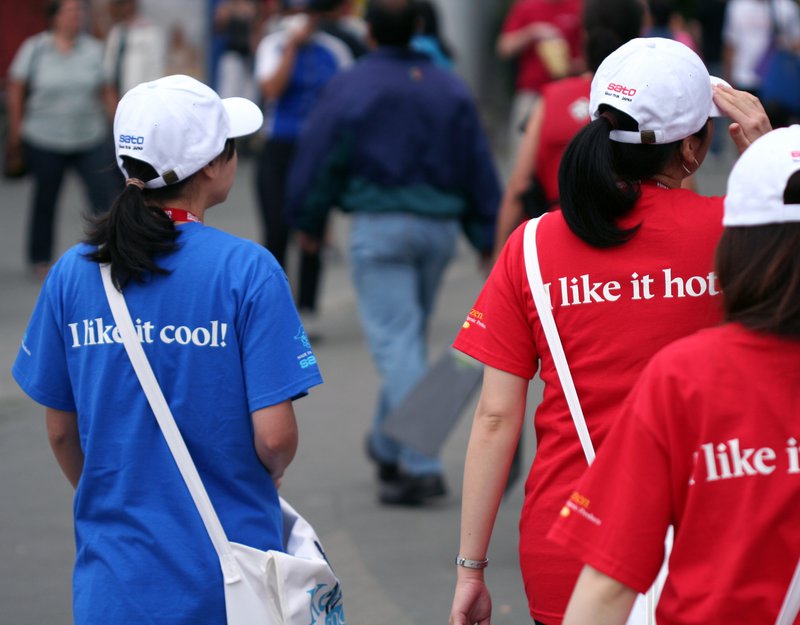Long-term resident
TEASE
there has been a definite uptick in the number of Catalans wearing tees with English slogans PEOPLE DON’T HABITUALLY WALK AROUND WEARING SLOGANS IN, SAY, FRENCH, GERMAN OR SPANISH, AND MUCH LESS CATALAN
Many, many years ago I was working in an adult education centre in Hospitalet de Llobregat when I couldn’t help noticing the T-shirt being worn one day by the girl at reception. It was white, except for a single sentence printed in black right at the level of the tips of her breasts: ’TOO HOT TO HANDLE’. I asked her in all confidence if she knew what it meant and she said no. I translated, apologetically, and after having slapped a hand over her mouth in embarrassment, she slung a jersey over the offending words (many of the people she had been attending that day were students of English).
More recently, there has been a definite uptick in the number of Catalans wearing tees with English slogans, and not just the ones that function as paid ads for companies like Jack & Jones, which splashes its name over its products in fonts so large their wearers might as well be carrying sandwich boards. But it’s slogans and sentence which are really in fashion. For example, just in the last couple of weeks, there have been several more or less predictable sightings of T-shirts using the word ’love’ such as TRUE LOVE and, more confusingly, SUN LOVE. Other slogans tend to be a lot more surprising: seen on the metro was a man whose apparel made it very clear that WE’RE HAPPY TO SERVE YOU, although there was no indication that he was about to serve anything to anybody, anywhere. Or, for instance, an apparently contented looking woman seen on Barcelona’s Passeig Fabra i Puig felt the need to declare THIS IS THE END, a message offset minutes later on the same street (I’m not making this up) by a man asking for FIVE MORE MINUTES.
But it was Banyoles – where I half live – that provided some truly baffling legends. One man’s back was certain that LEAD PIPES SAVE LIVES, which is not the case at all; according to Wikipedia, and I quote: ’lead is no longer permitted for new potable water piping installations due to its toxicity’. It was only later that I found out LEAD was a misspelling of LOUD, as in LOUD PIPES SAVE LIVES, a bikers’ motto which claims that the louder a bike’s exhaust pipes, the better the chances of avoiding motorcycle accidents (this is not true either, by the way). But the phrase which really flummoxed me was GET YOUR GROOT ON. I more or less tried to parse this sentence, given that ’groot’ is the Dutch word for ’big’, leading to the conclusion that it was something to do with bigging oneself up (in Jamaican parlance). It wasn’t until I looked it up for this article that I realised how completely out of touch I was with certain corners of popular culture, Groot being a tree-like character in Marvel’s ’Guardians of the Galaxy’ franchise (although I still don’t understand the sentence on that T-shirt any better).
Of course, this article could go on and on, given that of all the slogans on T-shirts worn in Catalonia, around 95% are in English, despite frequently not being understood by their own wearers. But why? After all, in the English-speaking world, people don’t habitually walk around wearing slogans in, say, French, German or Spanish, and much less Catalan. I finally found the answer in the form of a tote bag worn by the customer standing next to me in the local butcher’s: ’SI AQUESTA BOSSA ESTIGUÉS EN ANGLÈS, MOLARIA MÉS’. Which is Catalan for: ’If it was in English this bag would be cooler’. Voilà!


